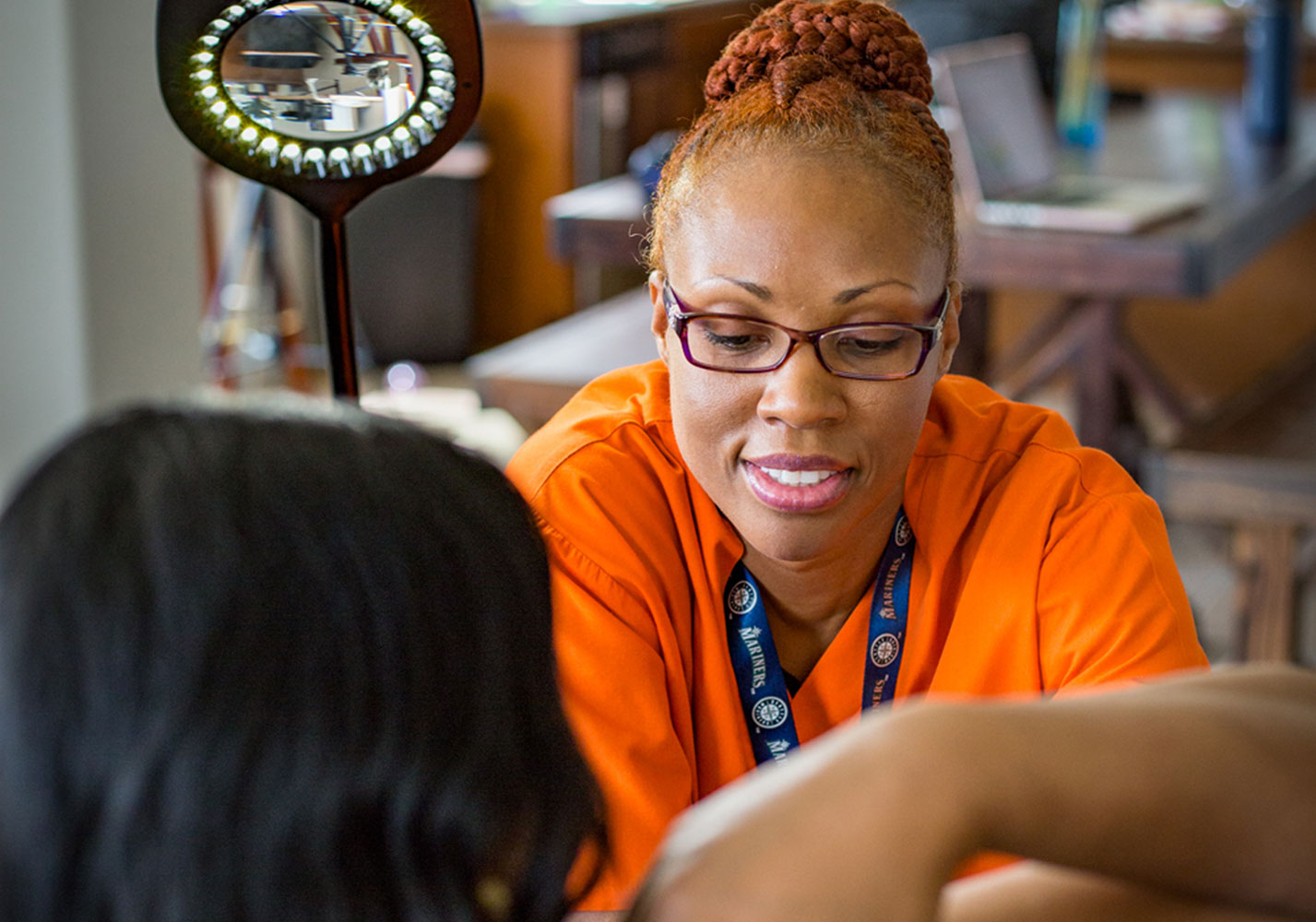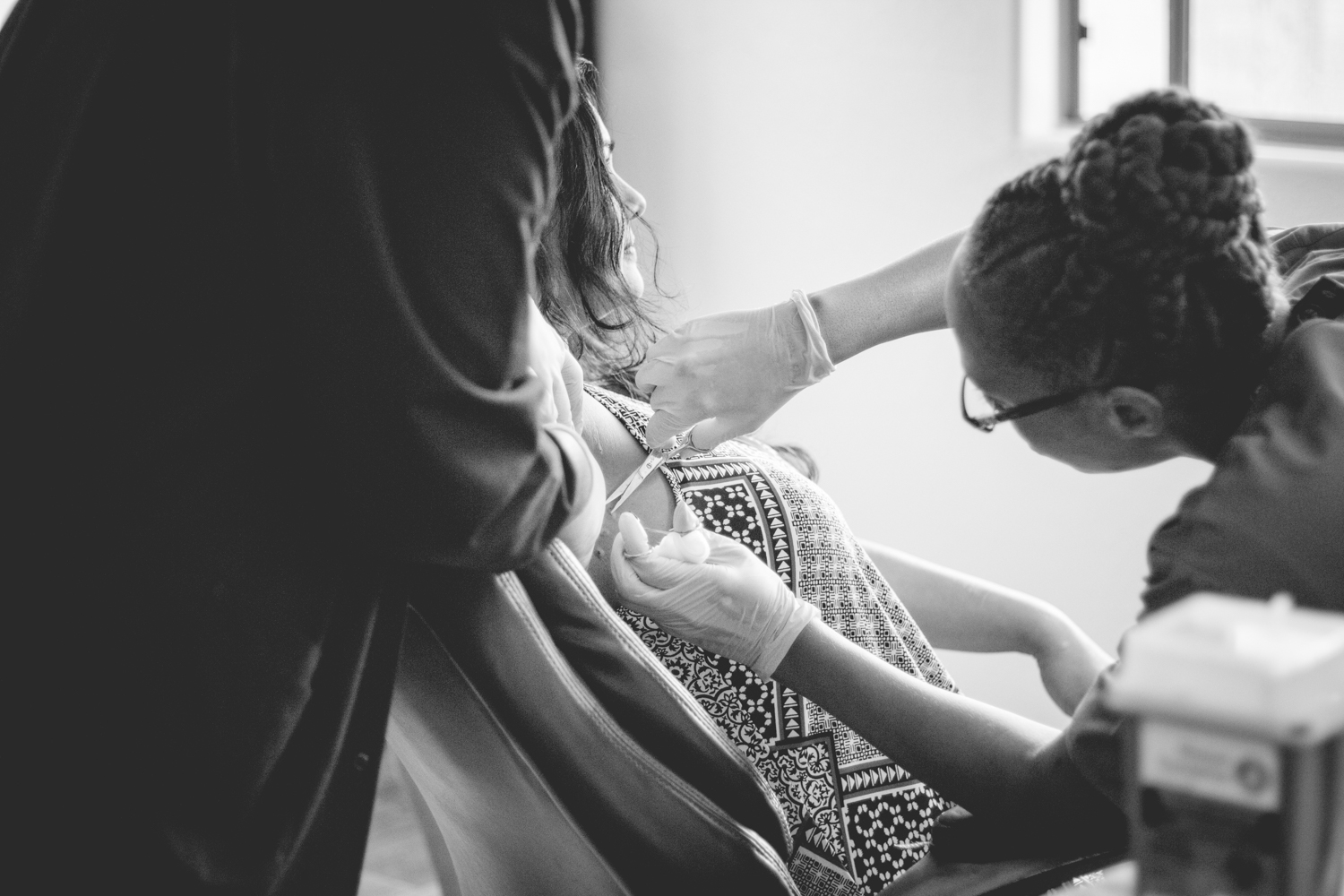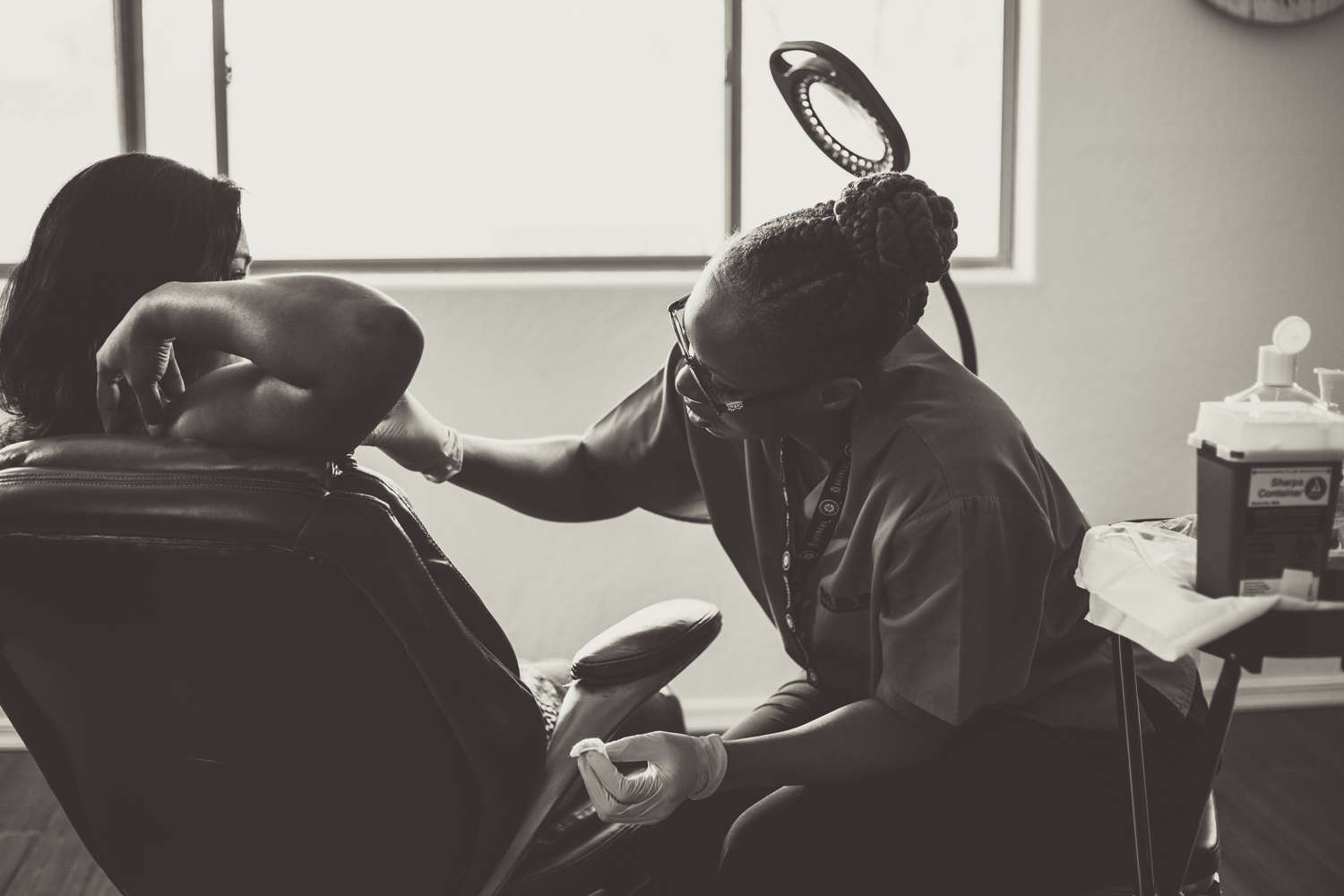Before we jump into how mobile skin exams protect patient privacy, I wanted to touch on the known disadvantages of Doctor’s appointments. Heading to the dermatologist, or doctor in general, can be frustrating. This is one of the many reasons why I started Mobile Skin Screening in Phoenix, Arizona. Wait times for dermatology appointments can range from 30 days to 4 months!
In-Appointment Wait Times
The day of your appointment isn’t always convenient either. You have to arrive early, wait to be taken back to a room (normally after your scheduled time), then wait some more for the provider to finish with their prior patient. After all that anticipation, the dermatologist normally rushes through your appointment, makes some general assumptions and pays more attention to his computer than you. It’s a bad experience for most.
The Actual Costs of Going to the Dermatologist
On top of the inconvenience, most health insurance companies require patients to see a primary care provider first. Being forced to get a dermatology referral means you’re stuck paying your copay twice! Moreover, insurance tends to classify dermatology as a cosmetic procedure. Most people don’t know they need to meet their deductible (average amount $5k) before insurance coverage begins. This means they typically have to pay 100% of all treatments and procedures.

How Our Mobile Skin Exams Protect Patient Privacy
There are plenty of reasons for people to avoid the Dr’s Office. Although most patients don’t go because they don’t want to hear bad news, they’re also beginning to question their privacy. Not knowing who’s looking at their personal information can be disheartening and uncomfortable. At Mobile Skin Screening, we don’t believe in saving and sharing patient information. We keep everything in the hands of the patient, and for good reason.
Before and during your appointment, we have the ability to analyze your medical history. But, once the appointment is over, we return all of your medical documents and history information. Since we’re not obligated to report procedures to insurance for payment, full disclosure is provided. The only information I keep on file is the patient’s name, date of service, diagnosis and procedure. We only do this to better treat return patients.
A Doctor’s Visit Doesn’t Promote Privacy.
When you visit the doctor, there are a number of people that have access to your private information. Not only does this increase susceptibility to error, but it can be uncomfortable. During a routine visit, the front desk, medical assistant, provider, and follow up employees all have access to your records and reason for visit. If there is an additional concern or complaint, you also expose your privacy to customer support, back office staff or the office manager. It’s difficult enough to share private information, let alone with people who are only a part of the process – and not necessarily a solution.
Nothing is More Private Than a Home Appointment.
 When you’re being taken care of at home, there is a sense of comfort and control. You’re in a safe place with familiar surroundings and nothing about the experience feels “public.” Receiving a mobile skin exam takes the anxiety out of going to the doctor’s office and experiencing cold, lonely and brightly lit exam rooms.
When you’re being taken care of at home, there is a sense of comfort and control. You’re in a safe place with familiar surroundings and nothing about the experience feels “public.” Receiving a mobile skin exam takes the anxiety out of going to the doctor’s office and experiencing cold, lonely and brightly lit exam rooms.
There is a lot of unknown when it comes to planning a doctor’s visit. It’s difficult for most to estimate the amount of money and time they’ll need to invest in something they need to get taken care of. When patients are able to eliminate wait times and access transparent pricing, it encourages them to schedule more routine check ups. At the end of the day, the convenience and comfort improves their overall health and quality of life.
How We Keep Information Private After the Exam
Throughout the Mobile Skin Screening experience, patients are able to control who sees what. If further testing is required, MSS works with a local pathology lab for the diagnosis of tissue specimens. Once the pathology report is complete, I am faxed the path report and then I notify the patient.
The pathology lab bills the patient directly for processing and analyzing the tissue specimen. Mobile skin exams protect patient privacy by eliminating the need to store information in either party’s systems. The patient simply shares the results with whomever else may be a benefit to their situation.
More Information About Dermatology EMR Systems
Before the Affordable Care Act required all medical facilities to go to and EMR, facilities would keep the patient’s record within the facility. This meant that only the individuals involved in your care could have access to your records. This made it easy for providers to look at previous encounters to know your history. The two disadvantages of a hard copy patient record are if there was a fire or if your record got misplaced.
 With an EMR system, information is often auto-populated which may not be updated reflecting inaccurate information of the patient. EMRs do not allow errors to be deleted once the provider signs off on the record. If a patient’s name is misspelled or there are duplicate records, it can delay treatment and coverage of a patient’s treatment.
With an EMR system, information is often auto-populated which may not be updated reflecting inaccurate information of the patient. EMRs do not allow errors to be deleted once the provider signs off on the record. If a patient’s name is misspelled or there are duplicate records, it can delay treatment and coverage of a patient’s treatment.
It is commonplace for the EMR system to be down and when they come back online information can be missing or a patient’s record could be deleted and can’t be recovered (I have seen all of the aforementioned examples). EMRs are frequently hacked and facilities may not necessarily notify you that your sensitive information has been compromised.
The sensitive information you are required to give that is stored in an EMR (i.e., ss#, spouse’s name, home address, your employer, your children’s name, DOB) is just the information that is needed for identity theft. I don’t ask or require a pt’s ss#, spouse’s name or employer. I don’t write down patient’s DOB on any of my forms.
If you’d like more information on our services and procedures, feel free to contact us with your questions or concerns.





